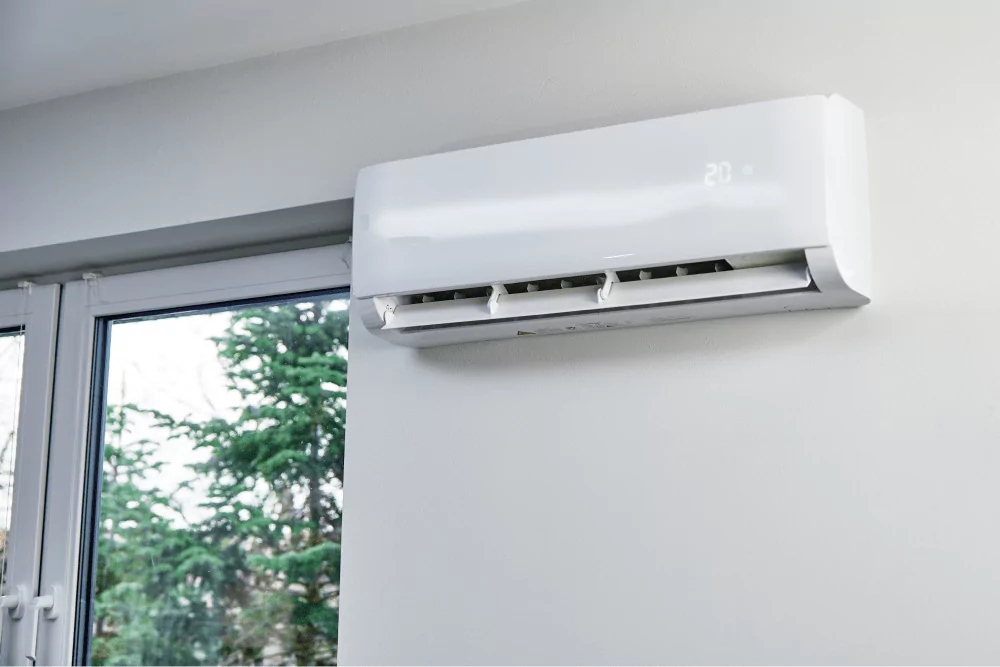
Indoor air quality (IAQ) is an essential factor for maintaining a healthy and comfortable living environment, especially in Florida, where heat and humidity can increase the presence of allergens, mold, and other contaminants. Ductless HVAC systems are gaining popularity as an energy-efficient and flexible option for cooling and heating, but they also offer significant benefits for improving indoor air quality. In this post, we’ll explore how ductless systems can help homeowners in Florida breathe cleaner, fresher air.
Elimination of Duct-Related Contaminants
Traditional HVAC systems rely on ductwork to distribute air throughout the home. Over time, ducts can accumulate dust, mold, pet dander, and other pollutants, which are then recirculated into the living space every time the system runs. This is especially concerning in Florida’s humid climate, where mold growth is more likely to occur within ducts.
Ductless systems, as the name suggests, do not use ducts to deliver air. Instead, they transport conditioned air directly from the outdoor unit to individual indoor units. This eliminates the risk of contaminants building up and being spread through the home, significantly improving indoor air quality.
Advanced Filtration Technology
Most ductless systems come equipped with multi-stage filtration that helps capture and remove airborne particles. These filters trap dust, pollen, bacteria, and other harmful pollutants, helping to keep the air inside your home cleaner. This is particularly beneficial for people with allergies or respiratory conditions, as Florida’s air is often filled with outdoor allergens like pollen and mold spores.
Regularly cleaning or replacing the filters in your ductless system ensures that the air circulating in your home remains free from common indoor pollutants. The filters in these units are also easy to access and maintain, making it simple for homeowners to keep the system operating efficiently.
Reduced Moisture and Mold Growth
Humidity is a major concern for homeowners in Florida. Excess moisture can lead to mold growth, which not only harms indoor air quality but can also cause structural damage to the home. Traditional HVAC systems can sometimes struggle to manage humidity levels effectively, leading to damp conditions that encourage mold growth within the ducts.
Ductless systems have built-in dehumidification features that help reduce excess moisture in the air. By maintaining optimal humidity levels, ductless systems minimize the risk of mold growth, creating a healthier environment with better air quality. This is especially important in high-humidity areas like Florida, where controlling moisture levels can be a constant challenge.
Better Zone Control Means Cleaner Air
One of the primary advantages of ductless systems is the ability to create individual zones within your home, allowing you to control the temperature and airflow in specific rooms. This zoned approach also benefits indoor air quality because it reduces the spread of pollutants between rooms.
For example, if one room in your home is more prone to dust or pet dander, a ductless system allows you to isolate that area, preventing contaminants from circulating throughout the entire house. You can also keep high-traffic areas, like living rooms or kitchens, more effectively filtered without affecting the air quality in other parts of the home.
Quiet Operation Means Less Air Disturbance
Traditional HVAC systems often produce noise that can disturb dust and other particles in the air, leading to an increase in airborne contaminants. Ductless systems, on the other hand, are known for their quiet operation. By running more quietly and smoothly, these systems create less air disturbance, which helps keep dust and other particles from becoming airborne and affecting indoor air quality.
Energy Efficiency and Air Quality Go Hand in Hand
Improving indoor air quality doesn’t have to come at the expense of energy efficiency. Ductless systems are known for their ability to cool and heat homes efficiently, using less energy than traditional systems. By optimizing energy use, these systems reduce the need for constant air circulation, which can decrease the spread of airborne contaminants and allergens.
Additionally, ductless systems allow you to condition only the rooms you use, reducing the overall workload on the system and helping to maintain better air quality throughout your home.
Conclusion
Ductless HVAC systems provide a host of benefits for homeowners in Florida, particularly when it comes to improving indoor air quality. By eliminating ducts, offering advanced filtration, and helping control humidity levels, ductless systems create a cleaner, healthier environment for you and your family.
If you’re interested in learning more about how a ductless system can enhance the air quality in your home, reach out to a trusted HVAC professional in Florida today to explore your options.